10 Common Scams to Look Out For When Traveling Abroad
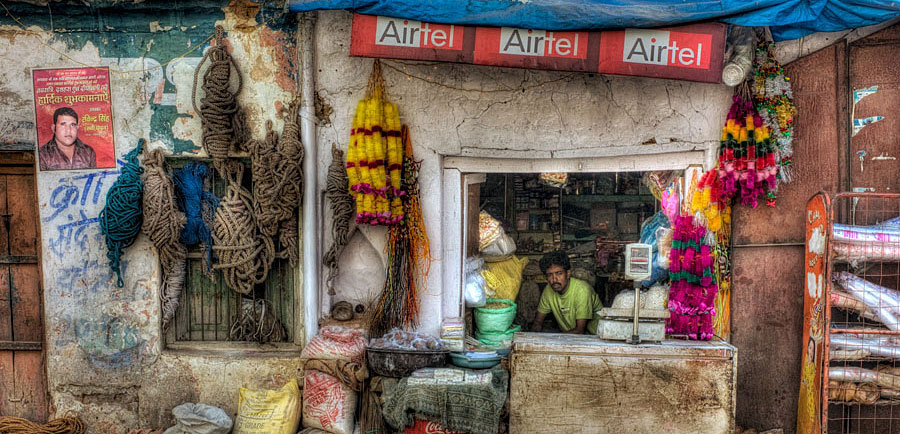
Unfortunately, the world has a lot of people trying to scam people out of their money. Here are ten common travel scams and how to fight them.
1) Fake Police
 This is one of the most common scams in foreign countries. A person claiming to be a police officer will ask for identification and then make up a crime that can be forgotten about for a cash payment. This is easily handled by calling the real police wherever you are at and asking for verification. It allows real police officers to arrive and scares away the scam artist.
This is one of the most common scams in foreign countries. A person claiming to be a police officer will ask for identification and then make up a crime that can be forgotten about for a cash payment. This is easily handled by calling the real police wherever you are at and asking for verification. It allows real police officers to arrive and scares away the scam artist.
2) Fantastic Deals
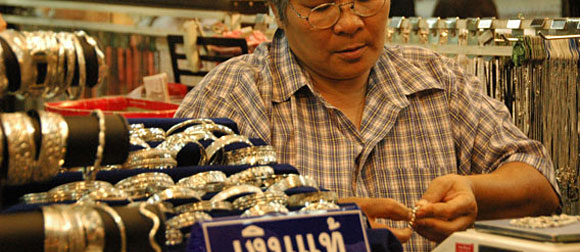 A diamond necklace for $20 sounds too good to be true because it is. No matter where someone travels, quality goods still cost more than garbage. If someone offers items at garbage prices, they are selling garbage.
A diamond necklace for $20 sounds too good to be true because it is. No matter where someone travels, quality goods still cost more than garbage. If someone offers items at garbage prices, they are selling garbage.
3. Taxis
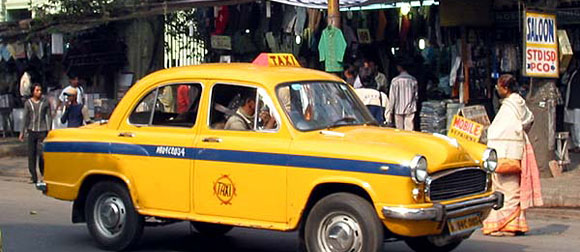 Unfortunately, some taxi drivers are out to make a buck off of uninformed visitors. It is important that a fare is agreed upon before entering a taxi and making sure a taxi driver knows how much money can be paid. If they know there is a maximum amount available, they are unlikely to drive past that amount.
Unfortunately, some taxi drivers are out to make a buck off of uninformed visitors. It is important that a fare is agreed upon before entering a taxi and making sure a taxi driver knows how much money can be paid. If they know there is a maximum amount available, they are unlikely to drive past that amount.
4. Timeshares
 Some vacations are inspired by the winning of a free stay in a hotel. These vacationers are often surprised to find themselves standing in a sales pitch for a time share. If a vacationer has agreed to stay in a hotel to listen to an hour long sales pitch, they should politely stay for the pitch and then leave. Timeshares are notoriously bad investments and should be avoided at all costs.
Some vacations are inspired by the winning of a free stay in a hotel. These vacationers are often surprised to find themselves standing in a sales pitch for a time share. If a vacationer has agreed to stay in a hotel to listen to an hour long sales pitch, they should politely stay for the pitch and then leave. Timeshares are notoriously bad investments and should be avoided at all costs.
5. Everything is Closed
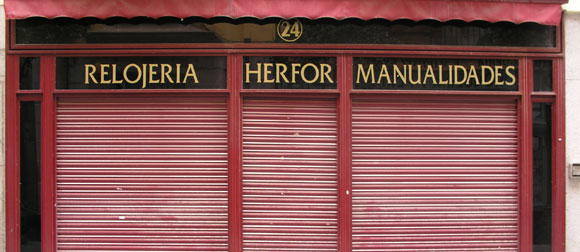 Some taxi drivers are paid by business to bring in customers. This means that when someone asks to go to a similar business, the taxi driver will lie and say it is closed and then recommend the business that is paying them for customers. It is a common practice that can be combated by telling the taxi driver to take you to your chosen business anyways.
Some taxi drivers are paid by business to bring in customers. This means that when someone asks to go to a similar business, the taxi driver will lie and say it is closed and then recommend the business that is paying them for customers. It is a common practice that can be combated by telling the taxi driver to take you to your chosen business anyways.
6. Broken Scooter Scam
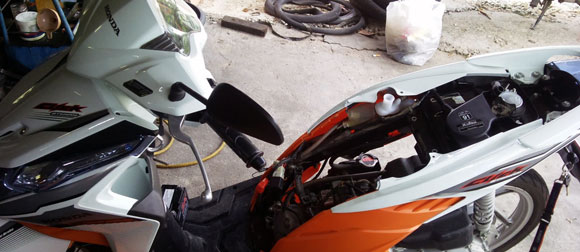 This is one of the more clever scams around. While taking a scooter tour, the bike will have a sudden breakdown. The owner of the bike will show up and explain that the bike was in perfect order before it was taken from the shop and demand the customer pay to repair it. The owner will then take the bike to a shop that will claim it is thousands of dollars to repair. This can only be combated by taking photographs of a bike before riding it and making sure to only use reputable dealers.
This is one of the more clever scams around. While taking a scooter tour, the bike will have a sudden breakdown. The owner of the bike will show up and explain that the bike was in perfect order before it was taken from the shop and demand the customer pay to repair it. The owner will then take the bike to a shop that will claim it is thousands of dollars to repair. This can only be combated by taking photographs of a bike before riding it and making sure to only use reputable dealers.
7. Stolen Scooter Scam
 Similarly, there is another scooter scam that involves the owner of the scooter stealing their own bike while the customer is in a store. The owner then demands that the customer pay for a new bike. This is easily combated by using a lock and key purchased independently to prevent the owner from using his key to steal his own bike.
Similarly, there is another scooter scam that involves the owner of the scooter stealing their own bike while the customer is in a store. The owner then demands that the customer pay for a new bike. This is easily combated by using a lock and key purchased independently to prevent the owner from using his key to steal his own bike.
8. ‘Mustard’ Scam
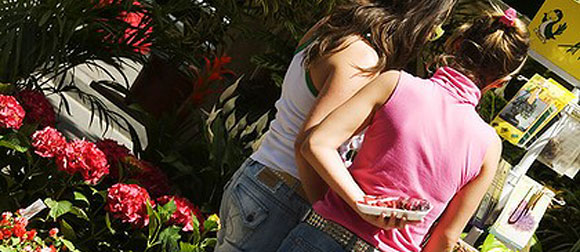 While someone is walking down the street, a stranger accidentally spills mustard (or any other food or drink) all over them. In their hasty apology they start wiping off the mustard. A few minutes later, it is realized that the stranger stole several things from the pockets of their unsuspecting victim. This is a hard scam to avoid and can only be combated by being very aware that scam artists may try to cause a distraction to steal valuables.
While someone is walking down the street, a stranger accidentally spills mustard (or any other food or drink) all over them. In their hasty apology they start wiping off the mustard. A few minutes later, it is realized that the stranger stole several things from the pockets of their unsuspecting victim. This is a hard scam to avoid and can only be combated by being very aware that scam artists may try to cause a distraction to steal valuables.
9. Bar Scam
 Many bars will hire girls to flirt with male tourists and convince them to go to the bar and buy them drinks. When the inflated bill for the drinks arrives, the girls are nowhere to be found. This can be avoided by using common sense. If the girls will only go to one specific bar, it is likely a scam.
Many bars will hire girls to flirt with male tourists and convince them to go to the bar and buy them drinks. When the inflated bill for the drinks arrives, the girls are nowhere to be found. This can be avoided by using common sense. If the girls will only go to one specific bar, it is likely a scam.
10. Hotel Scam
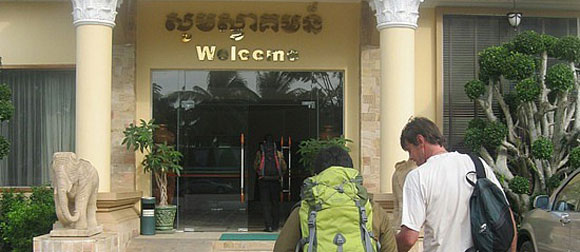 A local offers a hotel, hostel or guesthouse accommodations at an incredibly cheap rate but only for cash. Upon arriving at the hotel, it is realized the reservation was not real. This falls under not paying for something if it sounds too good to be true.
A local offers a hotel, hostel or guesthouse accommodations at an incredibly cheap rate but only for cash. Upon arriving at the hotel, it is realized the reservation was not real. This falls under not paying for something if it sounds too good to be true.







